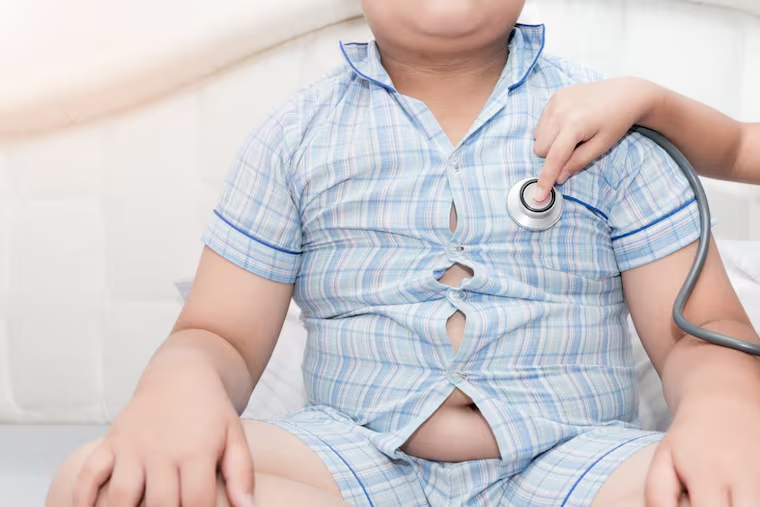Childhood obesity is up nationally. But what about Philadelphia kids?
Nationally, the scales numbers appear to be creeping up, But the new isn't all bad.

Despite some hopeful reports in recent years, the rates of American children who are overweight or obese appear to be on the rise, according to a new federal data analysis.
An article published this week in the journal Pediatrics reported that more than 35 percent of children ages 2 to 19 were overweight in 2016, including nearly 19 percent who were obese – steady increases over the previous five years.
"Despite intense clinical and public health focus on obesity and weight-related behaviors during the past decade, obesity prevalence remains high, with scant evidence that these efforts are counteracting the personal and environmental forces that contribute to excess weight gain in children, at least on a national scope," the article stated.
Some recent studies had suggested obesity rates had been at least leveling off, but that's not what the Pediatrics analysis found.
Many of the increases were gradual. But two of the biggest reported spikes were found in girls ages 16 to 19 and preschool-age children from 2 to 5. The teenage girls' overweight rate hit nearly 48 percent in 2016, compared with almost 36 percent in 2014, according to the data.
For the 2- to 5-year-olds, the obesity rate jumped from 9 percent in 2014 to almost 14 percent in 2016.
In children, overweight is defined as a body mass index at or above the 85th percentile for peers of the same age and sex; at the 95th percentile mark (in other words, the heaviest 5 percent) a child is considered obese.
Growing obesity rates for the youngest children in the study were especially troubling, said Asheley Cockrell Skinner, lead author of the Pediatrics article and an associate professor of population health science with Duke University School of Medicine and the Duke Clinical Research Institute.
"That's particularly concerning because when kids develop obesity younger, they're more likely to stay that way throughout their childhood and into adulthood," Skinner said. And the longer people are obese, she noted, the more likely they are to develop related health problems such as diabetes and heart disease.
Efforts like former first lady Michelle Obama's "Let's Move" campaign have been successful in calling attention to the problem, even if they haven't resolved it, Skinner noted. "The good work that's being done isn't being done in vain," she said.
On the up side, she said, some cities have made progress in reducing the rates of overweight youth with school and community nutrition programs and health initiatives.
New York City has improved, she said. And, believe it or not, so has the city of cheesesteaks and Tastykakes.
"There are certainly some cities that are doing a good job and seeing a decrease and not an increase, and Philadelphia is one of those," Skinner said.
Philadelphia hasn't experienced a big statistical drop in childhood obesity, but when compared with the national picture, any improvement is welcome, say experts.
"What we've seen is a bit of a downward trend [in Philadelphia], mostly from 2006 to 2009, and maintaining that. Things have been pretty stable since then," said Cheryl Bettigole, division director for chronic disease prevention with the city's Health Department.
The obesity rate for Philadelphia children ages 5 to 18 dropped from nearly 22 percent in 2007 to 20.6 percent in 2015.
Bettigole said numerous initiatives could be helping, including the Philadelphia School District's efforts to improve nutrition programs, and the city's 2011 campaign against sugary drinks. More green spaces could also be helping increase recreation opportunities.
"What we're not seeing, as far as we can tell, is an uptick," Bettigole said.
Meanwhile, the issue needs continued attention, say health data experts.
"The most important thing is having people realize childhood obesity is still a problem," Skinner said. "We hear some of the success stories, and we don't do a good job of understanding it's not reaching all the kids in the country. This is critical to the health of our children."